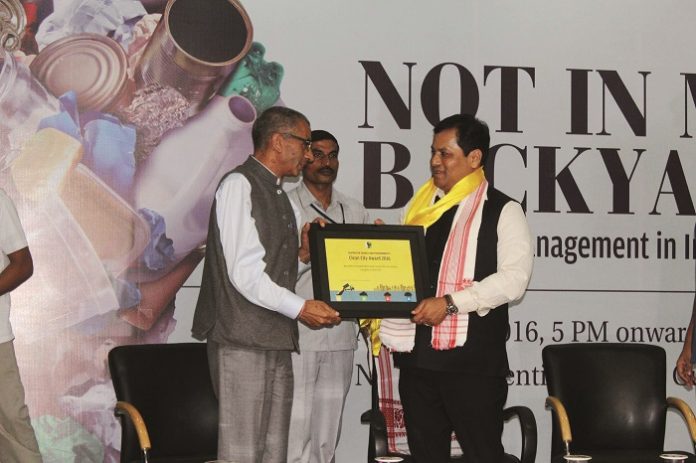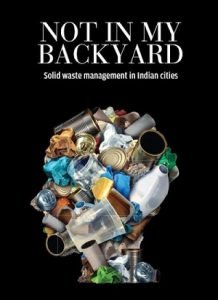
The Centre for Science and Environment (CSE), the New Delhi-based research and advocacy organization, conducted a book release and discussion in Guwahati, where its latest publication titled, Not In My Backyard– was released by Assam chief minister Sarbananda Sonowal. The book is a comprehensive analysis of the state of solid waste management in Indian cities, including cities in the North-east.
Sonowal also conferred CSE’s Clean City Awards on two cities – Aizawl and Gangtok. These are two of the 14 urban centres that CSE has rated in its publication as cities with good waste management practices. In its book titled Not In My Backyard, CSE has rated Indian cities on their management of solid waste.

In the North-eastern states, not even 50% of the solid waste is collected; less than 10% is processed and recycled. However, cities like Aizawl and Gangtok are showing the path towards sustainable waste management practices. The book release was followed by a discussion with city officials, regulators, urban planners, consultants and NGOs on the direction that waste management should take in the north-east and elsewhere with the overall objective being to achieve zero landfill.
Cities like Aizawl and Gangtok have taken the lead to show the way forward to tackle waste management through collection, segregation and processing. For instance, Aizawl is investing around Rs. 60 lakh for running a pilot project in five localities. This includes an investment of Rs. 15 lakh for construction and infrastructure for a waste facility. The infrastructure for solid waste segregation has been completed and rag-pickers are being trained for systematic segregation of the waste.
In Gangtok, due to intensive drives since 2005 for cleanliness and solid waste disposal, garbage, or even a person smoking on Gangtok’s roads, is a rare sight. However, the city is still struggling with segregation and treatment of waste leading to illegal dumping on hills and in rivers. But in the last few years, the municipal corporation has collaborated with various non-profit organizations for segregation of waste and behaviour change among residents.
The city has started a pilot project in two wards, Ranipul and Tadung where an all-women team is working with residents on waste segregation. Despite initial opposition, people were eventually convinced of the need for separation of wet and dry waste. Residents have already started collecting their plastic, paper, glass and metal to sell them to rag pickers. Kitchen waste is handed over to Gangtok Municipal Corporation’s collection trucks. Community organizers have also started distributing two bins to every household in both the localities. “The initiative taken by Aizawl and Gangtok must be scaled up and replicated across the north-eastern states,” says Swati Sambayal, programme officer, CSE and the co-author of the report.









